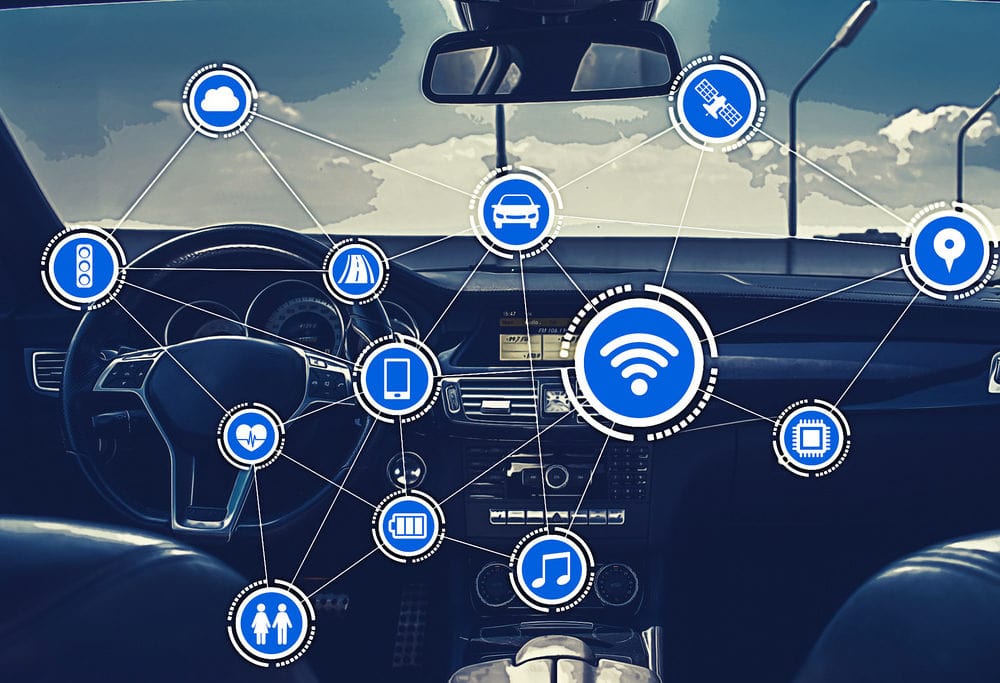Governments are investing in AI-Based smart parking that can help reinforce regulations by predicting parking behavior. These AI/ML applications can also make parking availability data more accessible to citizens, which can hopefully lead to streamlined mobility on city roads.
By Yamuna Bindu
In the United States, there are four parking slots available for every vehicle. If there’s such an abundance of parking space, why does 30% of all traffic consist of motorists circling around looking for a spot to park?
The crux of the problem is the lack of real-time information about the location and availability of parking slots. If motorists were equipped with this information, they could drive straight from their homes to the perfect parking lot. This would reduce fuel consumption and traffic congestion while optimizing the revenues of parking lots.
Fortunately, artificial intelligence (AI) and machine learning (ML) have already powered solutions that analyze parking behavior over a long period to accurately predict parking trends in a specific area and time. By bridging the parking availability information gap, this technology can transform the entire parking industry, revolutionizing parking reinforcement and increasing the average man’s accessibility to real-time parking information.

What is AI-based smart parking?
AI-based smart parking leverages the data collected by a mix of hardware like cameras, sensors, and software that form a parking management platform. These sensors constantly collect parking data which is processed by AI algorithms. These algorithms consume and format vast amounts of data and make predictions about parking occupancy from their learnings.
- Computer Vision
This technique detects empty parking bays using vehicle cameras. These smart cameras identify the markings of an empty parking spot and use geometric data to confirm their findings.
Another computer vision technique awards higher accuracy in identifying empty parking bays and is called the Harris Corner Detector. This system uses panoramic images to detect corners and identify the dimension of a parking slot, which is automatically assigned to a vehicle whose measurements match the space.
- Deep Learning
This is a type of machine learning based on comprehensive exposure to parking data which is picked up by artificial neural networks. For example, a popular software company, NVIDIA, created and trained an artificial neural network to detect parking spaces inside or outside a lot. They exposed their deep learning system to millions of parking images and videos.
Along with the neural network, NVIDIA also used their GeForce GTX 1080Ti Plus GPU as the eyes of the system to identify boundaries accurately inside any parking lot.
Similar to humans, AI-based smart parking systems learn from experience. This means that the more cars they park, the more accurate they get. While all of this happens in the backend, these algorithms transmit real-time data to a smart parking management platform so that operators can have a visual of vacant spaces.
In addition to determining parking occupancy, AI algorithms also learn from the data they process. Therefore, they can determine parking lot occupancy patterns, calculate peak and off-peak timings and automatically implement a dynamic pricing system. These algorithms also keep detecting vacant parking bays inside a garage, which prevents several drivers from reaching the same parking space inside a lot.
The emerging role of AI-based smart parking apps
Smart parking apps that use AI and ML are a critical piece of the puzzle because they share real-time predictions about parking availability with motorists. They do it by leveraging a network of cameras, embedded sensors, and algorithms that communicate with each other. This setup is at the heart of AI-based smart parking.
- Parking analytics
AI-based parking systems include special algorithms that can predict the future occupancy rate of a parking lot. It indulges in basic predictive analytics by studying and analyzing previous parking information stored in the parking management platform.
AI-based parking apps also make demand-related predictions by taking into account factors like the weather and day of the week. This helps lot operators figure out the reasons behind a shortage of demand. Based on forecasted demands, they can also take a call on expanding their parking space.
- Parking reinforcement using AI
AI-based smart parking solutions can determine parking availability in real-time, but that’s not all! With the right sensors and cameras located across a city, it can study parking patterns as well as regular defaulters and inform reinforcement officers. Some smart parking software this a step further and suggests optimized routes for reinforcement officers so that they can catch more parking violations.
AI-based reinforcement systems can leverage data to identify peak hours, areas that need an increase or decrease in security, areas that are under-used, etc. Such valuable information can aid managers in optimizing their current parking management strategies.
- Dynamic pricing automation
AI systems can automatically calculate and implement surge pricing and dynamic tariff rates without human intervention. These timings can vary daily, and AI-based smart parking systems can keep altering the dynamic pricing/tariff schedules based on demand and supply.
The system comprises software that constantly analyzes three data points – parking availability, frequency, and present occupancy. Based on these three values, the AI-based parking system recalculates demand and pricing.
In the end
There isn’t a shred of doubt that AI-driven smart parking technologies ensure a better parking experience. Applications of this technology help motorists conserve fuel and reduce their carbon footprint. AI-based parking reinforcement apps can reduce parking violations and increase the efficiency of parking regulation teams. On the other hand, parking lot owners and operators can use advanced smart parking technology to optimize parking usage, create new revenue streams, and identify inefficiencies in a driver’s parking journey without using AI.
The adoption of AI-based smart parking technology, delivered through user-friendly mobile apps, is here to stay.
Link: https://blog.getmyparking.com/2022/06/23/ai-based-smart-parking-is-revolutionising-mobility-as-we-know-it/
Source: https://blog.getmyparking.com
















Leave a Reply